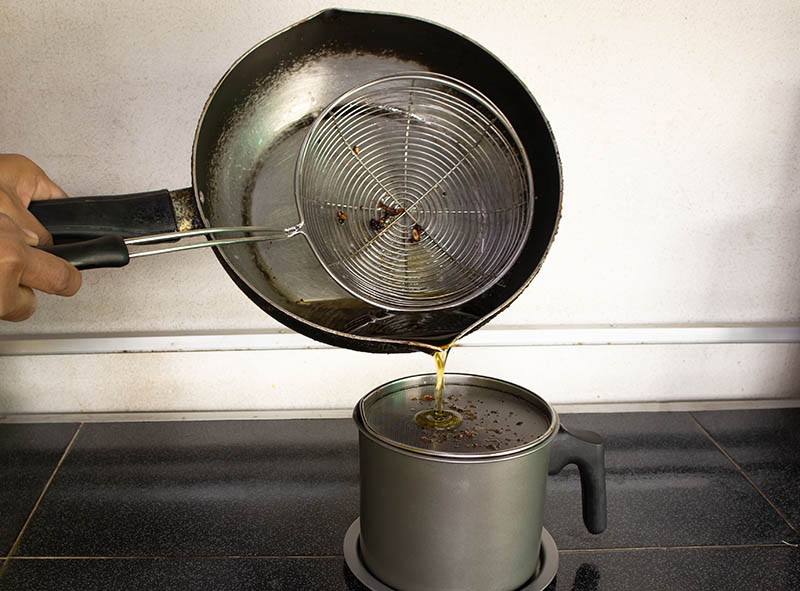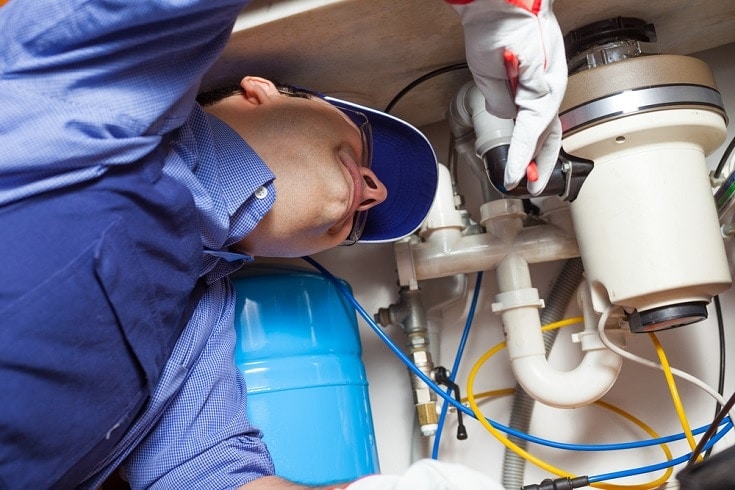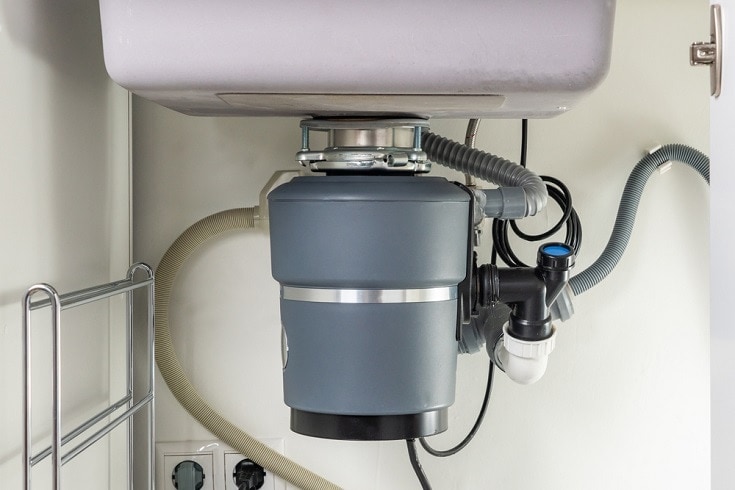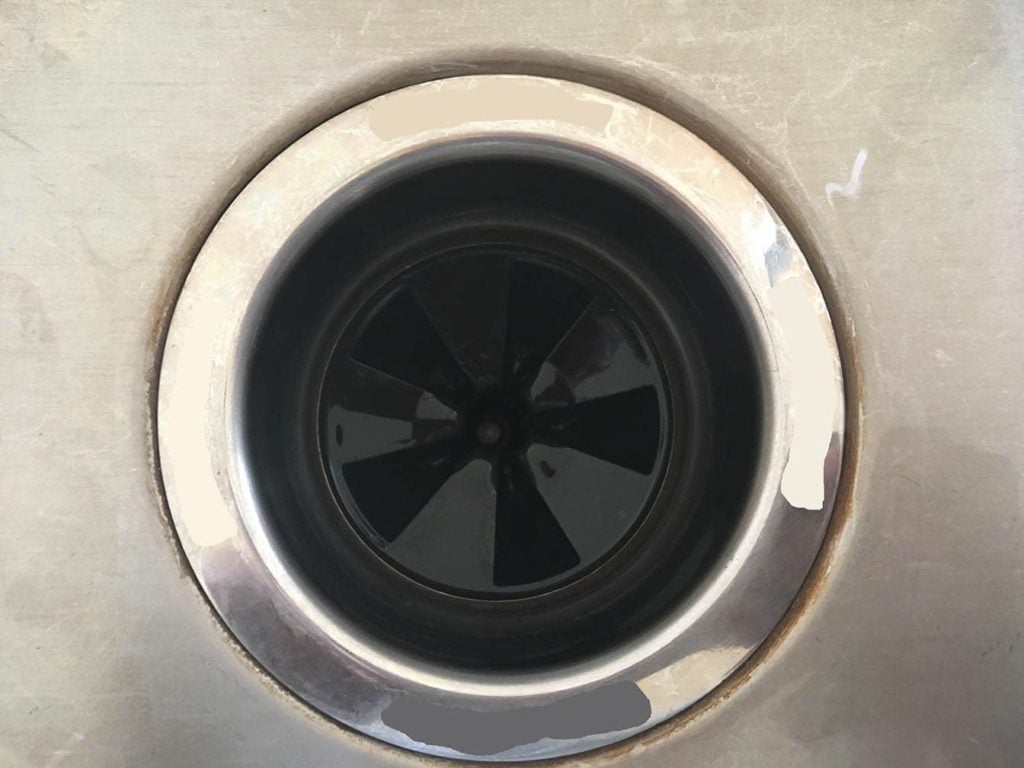Can You Pour Grease Down a Garbage Disposal? What To Avoid & Helpful Tips
-
Jeff Weishaupt
- Last updated:

A garbage disposal is a functional and easy-to-use household appliance. It minimizes the time spent on household chores, helping you relax after a tiring day. However, you may not be able to dispose of all types of garbage in these appliances.
Pouring down certain types of trash is prohibited in garbage disposals, including grease. Many people think of grease as liquid and think it is okay to dispose of it in a garbage disposal. That’s NOT actually true.
When the grease cools down, it solidifies and accumulates in the sewer pipes. Soon, your garbage disposal becomes clogged and doesn’t dispose of garbage like before. Grease can also damage your city’s sewage system.
However, if you accidentally pour the grease down the drain, you can pour boiling water, ammonia, or vinegar and baking soda solutions to turn the grease into liquid. This article discusses everything you must know about pouring grease down a garbage disposal.
 Can Grease Damage Your Garbage Disposal?
Can Grease Damage Your Garbage Disposal?
Grease, especially in warm or hot form, can significantly damage a garbage disposal. Many people believe that a garbage disposal can receive grease, whether you pour it directly into the drain or dispose of its traces from the leftover food. However, unfortunately, this is far from reality.
Even if you get a high-quality garbage disposal, it will not withstand the grease. It is believed that grease keeps building up in the garbage disposal instead of being disposed of. As a result, the appliance fails to grind food particles, leading to clogged drains.
You will know that grease is damaging your garbage disposal when the water drains from the sink slowly. You may also hear a strange water gurgling sound when using the appliance. Unpleasant smells also indicate the buildup of grease in the garbage disposal.

Why Should You Avoid Putting Grease Down the Drain?
As you know, grease can change its form from liquid to solid once it is cooled down. So, the liquid you are pouring down your drains won’t stay the same after some time. Imagine that grease moving through your kitchen sink pipes and sewer system. It won’t stay liquid and turn into solid clumps along the way.
After reaching the sewers, these clumps will start mixing with the city’s wastewater, which already has chemicals and grease from other houses. These things combine and turn into a solid waxy substance like solidified coconut oil.
Soon, the substance starts sticking to the sewer pipes. Then, more and more incoming greasy blobs will start sticking to it, turning into a large clump that keeps growing.
Think of it as a snowball rolling and collecting more snow, becoming bigger and bigger. However, the grease ball isn’t in an open area but in a contained place—a sewer pipe with narrow spaces.
As the clump grows, it will eventually start clogging the sewer pipes resulting in severely clogged drains. You will start noticing all the prominent signs of clogged drains—slow water drainage, a loud gurgling sound, and unpleasant odors from the sink.
So, for your ease and the betterment of your city’s sewage system, you should not pour grease down your garbage disposal or sink. Remember, prevention is better than cure. However, if, in any case, you pour grease into your garbage disposal, you can get rid of it with some tips and tricks.
What To Do If You Accidentally Pour Grease Down a Garbage Disposal?
If you accidentally spill grease down a garbage disposal, you shouldn’t worry unless it is in small amounts. Little grease spills won’t clog the drain. But as a safety measure, you can try pouring boiling water down the garbage disposal.
Hot water will turn the grease into liquid, enabling it to go further down the pipes instead of clogging them. Alternatively, mix vinegar and baking soda in boiling water and wait for the bubbles to form. This characteristic will break down the greasy fat into tiny pieces.
The vinegar and baking soda mixture will make your drains smell clean and fresh. Another cleaning agent is ammonia, which also melts the grease in your sewer pipes. Regardless of what method you opt for, just make sure to be quick so that the grease doesn’t turn into a hard, solid block.

What Is the Right Way of Disposing Grease?
So, it is understandable that you can’t pour grease down a garbage disposal. Now, the question is: “How can you properly get rid of grease?” Here are a few ways you can dispose of grease without damaging your kitchen sink pipes and the city’s sewer system:
Make a Grease-Collecting Container
Use a container or a used coffee tin and designate it as the “grease-collecting container.” Now, put this container on the counter and pour the grease into it after cooking. Make sure to strain the grease before collecting it.
If you plan to use the grease again, keep the container in the refrigerator. However, remember not to reuse the oil or grease in which you fried fish or used smoke.

Recycling
If the grease is of no use to you, collect it and give it to a recycling center in your local area. While some recycling centers accept used grease, some do not. So, before you take your grease container to a center, make sure to call to avoid the hassle.
Clean Tools
If you are a passionate gardener, you must have lots of gardening tools. Unfortunately, these tools gather bugs, pollen, and dirt over time, which affects their functionality.
The good thing is that you can use the grease to clean your tools and remove all sorts of stubborn dirt from their surfaces. Not only that, but you can also use it to remove paint from your hands.
Conclusion
Pouring grease down your garbage disposal can affect its performance in the long run. Although grease is in liquid form when hot, it becomes solid once it cools down. The same happens in your sink’s drainage pipe.
The grease keeps accumulating at a specific area in the pipe, turning into a clump that clogs your drain completely. So, you should avoid pouring grease down your garbage disposal.
Related Read:
- 14 Things Not to Put in a Garbage Disposal & 4 Safer Choices
- Can You Pour Oil Down the Drain? Everything You Need to Know!
- 8 Best Drain Cleaners for Grease: Reviews & Top Picks
Featured Image Credit: jirakit suparatanameta, Shutterstock
Contents
 Can Grease Damage Your Garbage Disposal?
Can Grease Damage Your Garbage Disposal?